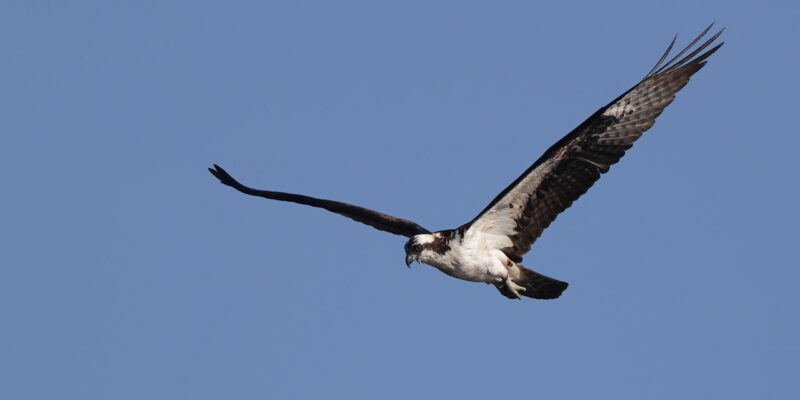
While we were at Ferry Creek off the Piankatank River, I saw a pair of ospreys soaring over the water, periodically diving down to scoop up baitfish for their young. There was a lot of bait in the water where we were because it’s back in a creek. But in a good part of the Chesapeake Bay, bait is scarce. That’s because a Canadian firm, Omega Protein, is scooping up millions of pounds of menhaden, an oily fish that helps sustain osprey chicks and many species of fish in the Bay.
Studies have shown that where Omega operates, ospreys are dying out. They are no longer reproducing themselves and their numbers are plummeting, with fewer nests each year.
That should be a wake-up call to politicians and biologists, but in Virginia, they are slow to learn – primarily because Omega sweetens the coffers of protective politicians with generous contributions, and the politicians then rally around the “many jobs at Reedville” mantra. I understand there are about 400 jobs in the Reedville plant where the factory converts the oily menhaden mash into fertilizer and pet foods. But the Chesapeake Bay is a multi-million-dollar asset and provides thousands and thousands of jobs in the marine and recreational industry – not just 400.
Rockfish numbers are down, crab numbers are down and now ospreys are becoming e extinct and still, the Omega ships swoop in – even if there are dozens of fishing boats in the area and send down the nets to scoop up all the menhaden in that particular school. And if there are schools of rockfish below, feeding on the menhaden, they get scooped up, too. Spotter planes locate the fish, and the fleet does the rest.
In Maryland, Omega is forbidden to even enter their waters, but in Virginia, they have free rein.
The problem is money, as in political contributions. When fishermen and conservationists finally pony up more campaign donations for politicians than does Omega, things will change quickly.
Until then, the ospreys in the Chesapeake Bay are going the way of passenger pigeons.

